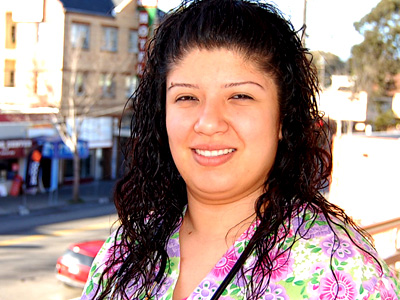
Bilingual workers are always in demand. In industries that have not been affected much by the poor economy – such as healthcare - they are especially in demand.
The Healthcare Sector Initiative (HSI) is known in Alameda County as a unique program that trains qualified, bilingual workers for the local healthcare industry. It also benefits workers looking for a higher paying career - on average, the starting wage of graduates represents a 56% income increase
over pre-training wages.The initiative is a partnership between The Unity Council, Merritt College and local healthcare employers. The most recent graduating class of the Health Sector Initiative's Medical Assistant Training Program was honored at a graduation ceremony last week in Oakland. The continuing success of the program's three separate courses, Medical Assistant (MA), Dental Assistant (DA) and Medical Interpretation (MI), has led to certificates in the medical field for nearly 200 of its graduates. These kinds of healthcare positions are among the jobs with the highest rate of growth in the Oakland region largely due to the presence of four major hospitals and a network of community health clinics.
“We were having a difficult time hiring for medical assistants,” says Patricia Royball, human resources director for La Clínica de La Raza. Patricia says that medical assistants often left their jobs after a short time at the clinic for jobs with larger employers like hospitals. She says it was an ongoing cycle that was quite costly for the clinic, which today employs five graduates of the initiative program. “They do great work and it offers them many career opportunities,” Patricia says.
Cristal Ibáñez graduated from the HSI training in 2006 and is now enjoying her work as a medical assistant at La Clínica. She performs many of the tests and duties of a registered nurse; vision tests, EKGs, blood pressure, etc. “To me it was a blessing because I’m a single mom,” says Cristal of the training program. She said the six-month program was intense but that she got great support from the trainers. “This opportunity was great for me,” she says. “I love working here. I do so much here for our patients – that’s the best part.”
Mayra Medina also works as a medical assistant at La Clínica and graduated at the same time as Cristal. She took several months off after graduating high school before starting the training. “They were there for us,” she says. “They really helped with financial aid and getting started looking for jobs.”
Since its inception in 2005, 70% of those who have successfully completed the training programs' courses have been placed in employment as medical assistants, dental assistants, medical interpreters, pharmacy technicians, home care providers, elderly case workers and administrative medical clerks.
Barika Culberson, 29, was running a child care business out of her home, earning only about $400 a month. She completed the Healthcare Sector Initiative program and now works as a medical assistant at UC Berkeley, earning $18 an hour. "It is great to be working in the field that you went to school for," she says excitedly.
"Many students are legal immigrants with language barriers, limited skills and education,” said Marsha Murrington, Executive Vice President, The Unity Council. “Couple that with being single moms with child care and transportation issues, often in difficult life transitions, such as divorce, with little promise of economic opportunity, and graduation becomes not only a courageous feat, but a tremendous testament to their commitment to becoming self-sufficient."
As a person who proved her commitment, Cristal Ibáñez encourages people who want a better opportunity: “Try it, give it a chance,” she urges. “It can be stressful but in the long run you get something out of it.”

